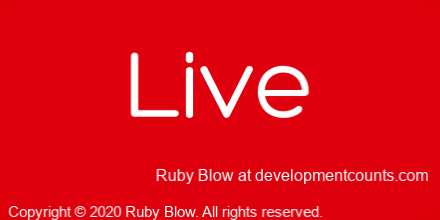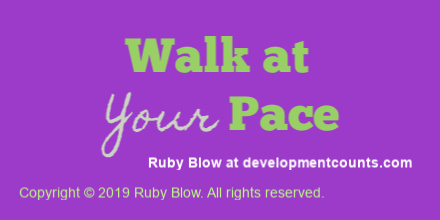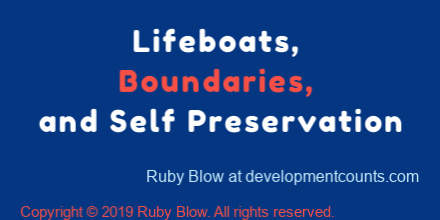What Do You Need?
A vital element in goal setting involves assessment. If you don’t explore what you want alongside what you need, you can end up very dissatisfied with your results and likely abandon your goals all together.
Your needs include:
- health, wellness and safety;
- fun, recreation and relaxation;
- social, family and love relationships;
- community, spiritual and religious expression or affiliation;
- finances – an element of safety and often included in professional as well as personal goals.
You many be asking, “What do these needs have to do with my professional goals?”
A person’s ability to master anything professional is predicated on their professional foundation.
Just think about the times you’ve personally experienced or witnessed someone falling down or losing ground professionally when they faced a personal challenge (like a broken relationship, a health problem, or a lost sense of purpose) that really undermined their professional capability.
A Five Step Process
Step 1- Put your needs first…and then scale down (yes, down) your professional goals to fit into the space in your life that is available after your personal needs are met. To explore your needs, ask yourself the following question as it relates to each area listed below. “What would I like to experience in my life on a daily, weekly, monthly or annual basis as it relates to _________?” Write down your responses.
- Fun, recreation, vacations, time off from work etc…
- Health and wellness activities like sleep, exercise, doctor’s appointments, massage appointments…
- Time with friends, family and loved ones.
- Community connection, prayer, meditation, time in nature, spiritual or religious ceremonies.
Review your budget (or create one) that supports these efforts. Adjust your activities based on costs and the fundamental elements of what you need in order to be okay in that part of your life.
Step 2- Tentatively create your ideal week. Factor in your work schedule and attentiveness to all of your needs identified in step 1. Now you are going to narrow down to three particular areas of focus from step 1. Ask yourself, “Which three needs being met would make the biggest and most fundamental difference in my life right now?”
Step 3- Create a plan that addresses each of those three areas identified in step 2 as being the most vital. Answer the following question for each area:
- What will I do differently?
- Do I have the resources I need to make this happen?
- Do I need support and accountability partners?
- Can I simplify this, and if so, what are the barriers or obstacles that I need to address?
Step 4- Give yourself 30 days to implement your three personal priorities. This means that you are giving yourself 30 days to implement your actions and turn them into habits. If you go more than two days without being attentive to your goals,then restart your 30 day clock. After a successful period of 30 days, move on to your professional goal(s).
Step 5- Identify a professional goal. The reason why I say identify one goal is because I have found most people’s professional goals involve multiple steps. This includes information gathering and putting what you’ve learned into practice. Your professional goals could be anything from:
- getting a new job;
- earning a promotion;
- starting a business;
- increasing your business income;
- or even starting a non-profit to name a few.
- Look at the availability in your schedule and life that you have to dedicate yourself to this task.
- Explore and learn about the various steps it will take to attain your goals. Get familiar with the journey ahead and ask yourself the following questions:
- What mindset do I need?
- What resources?
- Who be able, willing and available to guide me?
- How much time and money will I need (or am I able) to invest?
- Do I have an accountability partner? (Without this it is easy to become complacent and not move toward your goal.)
- Create a plan toward each step you’ve identified as necessary to the achievement of your goal. Start with simple tasks like books and podcasts that can support you. It’s worthwhile to do some legwork and make your own efforts outside of a mentor, support partner or friend. Determine if you will need to hire professional support.
- Identify your next step based on what you’ve learned from your information gathering. You will repeat aspects of this process, all while making sure to stay on top of your personal priorities. You don’t want to burn out or run out of steam and have that be the reason you do not accomplish your goals.
Remember achieving a professional goal is a process. Just like personal well-being is a process. Patience, discipline and consistency are the keys to success.
Copyright © 2016 Ruby Blow. All rights reserved.
Share your thoughts on Linkedin, Facebook, Twitter





